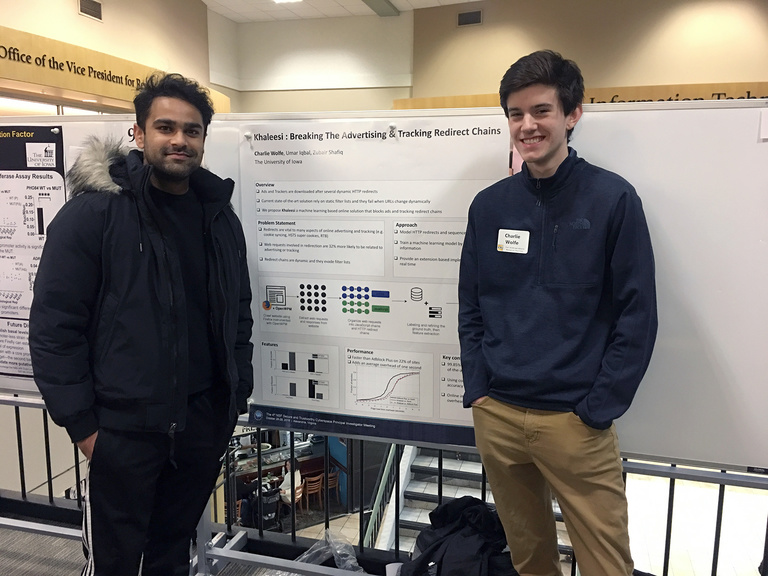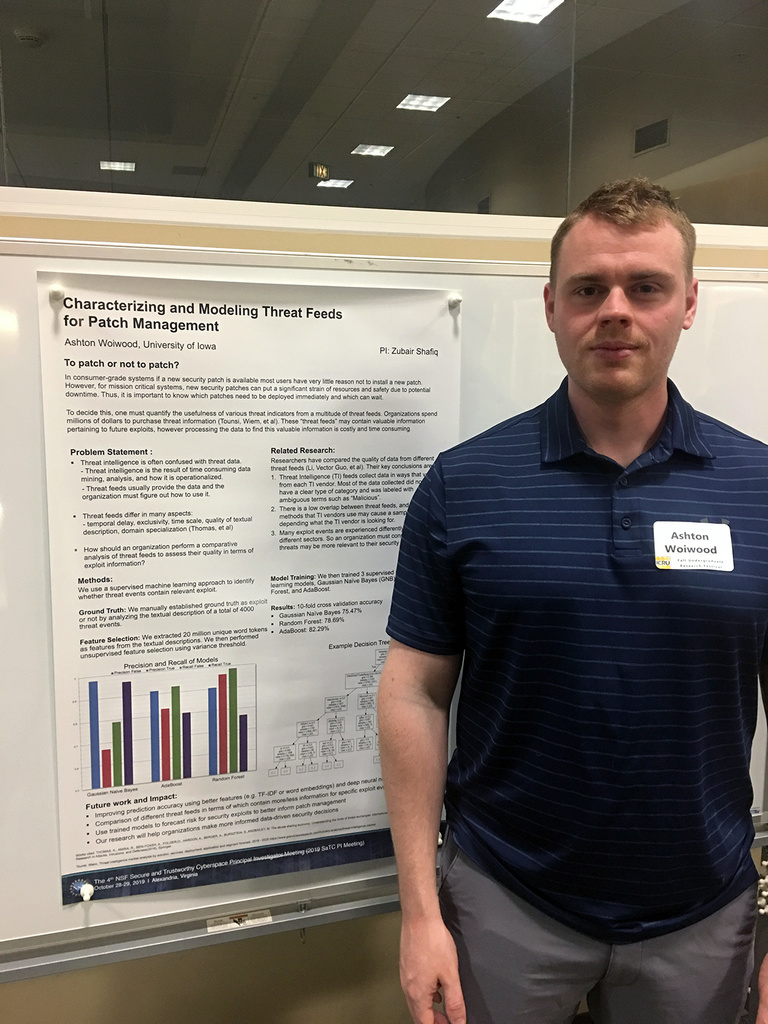Breadcrumb
- Home
- Research and Creative Work
- Research Spotlights
- Fall Undergraduate Research Festival 2019
Fall Undergraduate Research Festival 2019
This event is hosted by the Iowa Center for Research by Undergraduates. ICRU promotes undergraduate involvement in research and creative projects at the University of Iowa, serving students, staff, and faculty.
The 2019 Fall Undergraduate Research Festival (FURF) showcased visual presentations focusing on the research and creative work performed by undergraduates at the University of Iowa. Presenters work in six colleges and 44 different departments, representing a broad range of sciences, arts, and humanities.
Among them were:
Charlie Wolfe
Khaleesi: Breaking The Advertising & Tracking Redirect Chains
Majors: Computer Science and Engineering
Mentor(s): Zubair Shafiq
Software used to block online advertisements is implemented using manually curated regular expression lists which in turn causes it to be easily evaded and have many unused filters. Previously, researchers have proposed using machine learning in place of these lists to solve these issues. Our proposed approach focuses on blocking chains of HTTP redirects by leveraging the sequential data gained from redirection as opposed to web requests that are not involved in redirection.
Ashton Woiwood
Characterizing and Modeling Threat Feeds for Patch Management
Majors: Informatics
Mentor(s): Zubair Shafiq
In consumer-grade systems if a new security patch is available most users have very little reason not to install a new patch. However, for mission critical systems, new security patches can put a significant strain of resources and safety due to potential downtime. Thus, it is important to know which patches need to be deployed immediately and which can wait. To decide this, one must quantify the usefulness of various threat indicators from a multitude of threat feeds. Organizations spend millions of dollars to purchase threat information. These “threat feeds” may contain valuable information pertaining to future exploits, however processing the data to find this valuable information is costly and time consuming. We aim to use this rich data to model and predict future threat events to inform stakeholders in deciding to patch mission critical systems or not.
Other student presenters affiliated with the Computer Science Department were:
Ethan Bennett
Curve fitting of the decay phase of postsynaptic currents of mammalian neurons
Majors: Computer Science
Mentor(s): Charles Harata (Molecular Physiology and Biophysics), Hiroyuki Kawano (Molecular Physiology and Biophysics)
Daniel Conway
Structural Predictions of Escherichia Coli Outer Membrane Proteins Using Evolutionary Contact Information
Majors: Biochemistry, Computer Science
Mentor(s): Adrian Elcock (Biochemistry)
Alexander Powers
Robust Automatic Multiple Landmark Detection in 3D MRI
Majors: Computer Science and Engineering
Mentor(s): Hans Johnson (Electrical and Computer Engineering)

